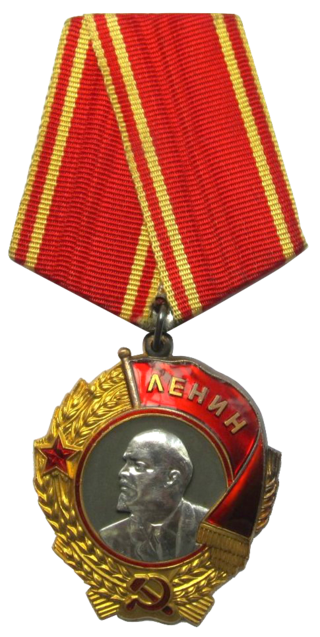Related Research Articles
Vladimir may refer to:
Stepanov (Степанов), female Stepanova is a common Russian and Serbian surname that is derived from the male given name Stepan and literally means Stepan's. The Latvianized form is Stepanovs. Notable people with the surname include:

Vladimir is a masculine given name of Slavic origin, widespread throughout all Slavic nations in different forms and spellings. The earliest record of a person with the name is Vladimir of Bulgaria.
Yurchenko is a Ukrainian patronymic surname that comes from the name Yuriy (George). It may refer to:
Ulyanov, or Ulyanova is a common Russian last name and may refer to several people:
Medvedev and female Medvedeva (Медве́дева), from Russian medved’ (медве́дь), meaning the animal "bear", are Slavic surnames. Notable bearers of the name include:
Kovalevsky is a Russian surname. Notable people with the surname include:
Petrenko is a patronymic surname of Slavic origin derived from the first name Petro and effectively means of Peter/Peter's. Notable people with the surname include:
Fomin, or Fomina, is a common Russian surname that is derived from the male given name Foma and literally means Foma's. It may refer to:
The Blank family in the Russian Empire was the family of the maternal grandfather of Vladimir Lenin.
Kravtsov is a Russian language surname, of Western Slavic origin "krawc" coming from Polish form for krawiec/kravets, "tailor". The German-language transcription commonly used in the past is Krawtzoff.
Pavlov and its feminine form Pavlova are common Russian and Bulgarian surnames. Their Ukrainian variant is Pavliv. All stem from Christian name Paul. These names may refer to many people:

Lenin's hanging order is a telegram from Bolshevik leader Vladimir Lenin ordering the suppression and execution of captured participants in the kulak revolt in the Penza Governorate. It was first called the "Hanging Order" by the U.S. Library of Congress. The telegram was addressed to "Vasily Kurayev, Yevgenia Bosch and Alexander Minkin and other Penza communists", dated 11 August 1918.
Babayev or Babaev is a Russian, Ukrainian, Turkmen, Uzbek and Azerbaijani masculine surname that is slavicised from Turkic languages; its feminine form is Babayeva or Babaeva. The word babay (бабай) means "grandfather" or "old man" in Tatar and Bashkir. Alternatively, it comes from Arabic word "bab", which means "door". There was a name "Babullah" which meant "doorway of God" or "doorway to heaven". It was very popular among Turkic nations before Soviet times. Grandchildren of "Babs" were sometimes given "Babayev" as a surname. It was initially "Babov", but later it became "Babayev" due to the influence of Russian phonetics. The surname may refer to:
Lysenko or Lisenko is a Ukrainian surname. It most often refers to:
Naumenko is a Ukrainian-language surname. It may refer to:

The Order of Lenin was an award named after Vladimir Lenin, the leader of the October Revolution. It was established by the Central Executive Committee on 6 April 1930. The order was the highest civilian decoration bestowed by the Soviet Union. The order was awarded to:

Given names of Soviet origin appeared in the early history of the Soviet Union, coinciding with the period of intensive word formation, both being part of the so-called "revolutionary transformation of the society" with the corresponding fashion of neologisms and acronyms, which Richard Stites characterized as a utopian vision of creating a new reality by means of verbal imagery. They constituted a notable part of the new Soviet phraseology.
Bibliography of the Soviet Union consists of the following sections:

Maxim Yuryevich Fomin, better known as Vladlen Tatarsky, was a Ukrainian-born Russian military blogger, convicted bank robber, and participant in the Russo-Ukrainian War.
References
- ↑ Valeri Mokiyenko, Tatyana Nikitina "Толковый словарь языка Совдепии" ("Explanatory Dictionary of Sovdepiya"), St.Petersburg, Фолио-Пресс, 1998, ISBN 5-7627-0103-4.